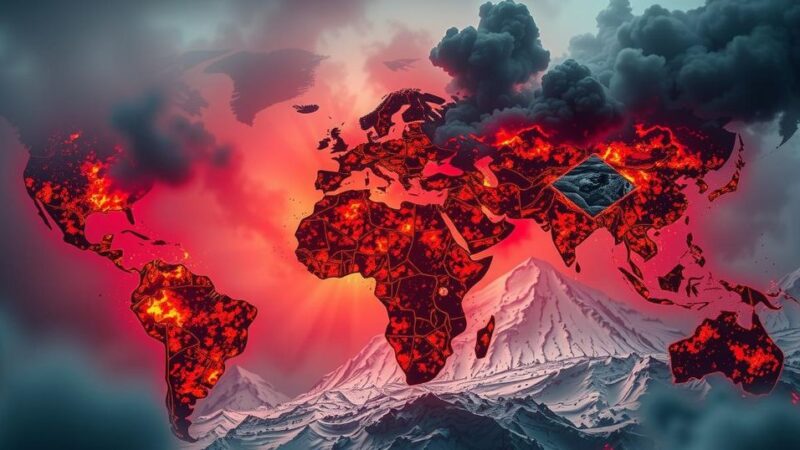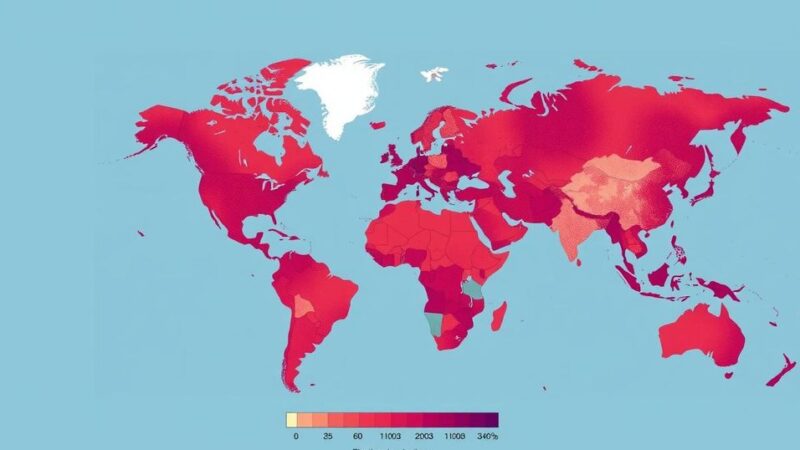In 2024, climate change has resulted in an average of 41 extra days of dangerous heat, severely impacting human health and the economy. A significant study highlights a potential $141 billion income loss in India due to labor capacity reductions from heat stress. The need for expedited transition away from fossil fuels is critical to combat increasing extreme weather events. Notably, climate change has intensified numerous weather incidents, leading to high fatalities and displacement globally.
Recent analyses indicate that human-induced climate change has resulted in an alarming increase of 41 days of dangerous heat globally in 2024. This surge in temperature has significant repercussions on public health, workforce productivity, and the economy. A study published in The Lancet estimated that India alone could face a $141 billion loss in potential income as a result of decreased labor capacity owing to extreme heat in 2023. The findings call for urgent action towards a transition from fossil fuels to mitigate the recurrence of extreme weather events characterized by heatwaves, droughts, and floods.
The comprehensive report by World Weather Attribution and Climate Central emphasizes the critical need for accelerated efforts to combat climate change. The interplay of anthropogenic warming has exacerbated the severity of 26 out of 29 studied weather events, leading to over 3,700 fatalities and the displacement of millions. The influence of climate change has proven to be more substantial than even that of the El Niño phenomenon in affecting various extreme weather scenarios, including severe droughts in the Amazon region.
The year 2024 is poised to be marked as the warmest on record, with the initial six months breaking heat records consecutively since 2023. On July 22, the highest temperature ever recorded was documented amidst a backdrop of 41 additional days classified as dangerous heat, characterized as the hottest 10% of temperatures compared to historical averages from 1991-2020. This extreme heat has exacerbated drought conditions, instigated storms, and triggered heavy rainfall events, culminating in devastating floods worldwide. In total, 219 extreme weather events fit the criteria set by World Weather Attribution for impactful occurrences and were largely attributed to climate change, overshadowing the effects attributed to El Niño.
The phenomenon of climate change, primarily driven by human activities, refers to long-term changes in Earth’s climate, particularly an increase in average atmospheric temperatures due to greenhouse gas emissions. This shift has provoked a cascade of environmental effects, including the rising frequency and severity of extreme weather events such as heatwaves, floods, hurricanes, and droughts. As scientists continue to study these impacts, clear correlations have emerged between intensified weather patterns and economic and health consequences, prompting a critical reevaluation of global energy policies and practices.
In summary, the data presented highlights the grave implications of climate change, notably the addition of 41 days of dangerous heat in 2024, which has far-reaching impacts on health and economic productivity. The urgent necessity for a shift away from fossil fuel dependency is underscored to prevent further worsening of climate-related disasters. This report serves as a clarion call for global stakeholders to prioritize sustainable solutions to mitigate climate hazards and protect vulnerable populations worldwide.
Original Source: www.businesstoday.in







